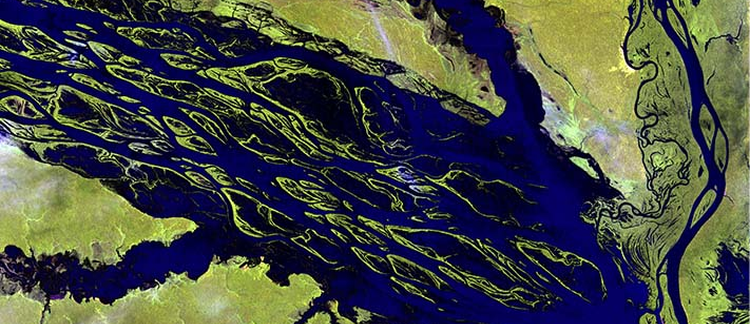This collection focuses on responses to climate change taking place in, and / or led by, non-traditional ‘research’ communities. It will provide a platform to record and disseminate the insights from many community-level and community-led research projects that are currently poorly visible (or completely invisible) to many researchers and practitioners.
We suspect that some of the most grounded, creative, innovative and transformative work on preparing for and responding to climate change impacts is and will be coming from communities around the world who are themselves foreseeing or currently grappling with the impacts of climate change. Communities of all kinds hold and constantly evolve important knowledge, skills and insights highly relevant to addressing climate change.
This collection will provide a platform to record and disseminate the insights from many community-scale and community-led research projects that are currently poorly visible to researchers and practitioners.
For further detailed overview of the collection aims and scope, please read the Editorial article, listed below.
Submission
Submission is open to anyone. The collection will include research articles, case studies and commentaries about community–level responses to climate change. We hope that all submissions will be based on work done in collaboration with or led by non-traditional research communities.
For more information or to enquire about submission, please contact the Editors at uclopen.environment@ucl.ac.uk
Authors should read through the journals author guidelines and publishing policies before submitting (https://journals.uclpress.co.uk/ucloe/site/authorguidelines). Please go to https://journals.uclpress.co.uk/ucloe/submissions to submit to the journal.
UCL Press offers waivers and discounts for Article-Processing Charges (APCs) including for articles whose corresponding authors are based in low-income countries (see https://journals.uclpress.co.uk/ucloe/site/about for more information). Authors are requested to contact the Editorial office (uclopen.environment@ucl.ac.uk) prior to submission to enquire and request these discounts. Please note that authors ability to pay any charges regarding to publication are kept separate to editorial review and Editors are not responsible for determining these waivers and discounts.
Case study articles
Case study articles should present a single report on an example of community responses to climate change, with some reflection on wider implications. Case studies typically do not include a lengthy and detailed investigation in the research literature and methodology, but authors are encouraged to include sufficient detail to provide context and framing for readers.
It is widely understood some authors may not be familiar with submitting work to academic journals. To help and support authors through the review process, authors of case study articles are requested to firstly complete the proposal form before completing the submission form. The Editors will then assess the proposal, provide feedback on the project, and either invite authors to formally submit and complete the submission form, or decline the proposal for the journal.
Please download the form here (). Once completed, please return to the Editorial office by email (uclopen.environment@ucl.ac.uk).
Note about data
Prior to submission, all authors should ensure that the data relied upon for the paper are either deposited into publicly available repositories whenever possible (for example, such as GenBank, TreeBASE, Dryad, the Knowledge Network for Biocomplexity or other suitable long-term and stable public repositories, see below notice on data repositories) or be included in the main text for open peer review.
For further information, including about FAIR data sharing, UCL have prepared some useful information about when, where, and how to share data as openly as possible, at https://www.ucl.ac.uk/library/research-support/research-data-management/best-practices/how-guides/sharing-data.
General repositories – for all types of research data (such as Figshare) – may be used where appropriate. UCL authors are encouraged to use the UCL Research Data Repository (please see https://www.ucl.ac.uk/library/research-support/research-data-management/ucl-research-data-repository)
Editorial
Community responses to climate change
Carla-Leanne Washbourne, Sarah Bell and Dan Osborn
2021-11-02 Volume 3 • 2021
Also a part of:
Research article
Communicating climate change and biodiversity loss with local populations: exploring communicative utopias in eight transdisciplinary case studies
Dawud Ansari, Regine Schönenberg, Melissa Abud, Laura Becerra, Wassim Brahim, Javier Castiblanco, Anne Cristina de la Vega-Leinert, Nigel Dudley, Michael Dunlop, Carolina Figueroa, Oscar Guevara, Philipp Hauser, Hannes Hobbie, Mostafa A.R. Hossain, Jean Hugé, Luc Janssens de Bisthoven, Hilde Keunen, Claudia Munera-Roldan, Jan Petzold, Anne-Julie Rochette, Matthew Schmidt, Charlotte Schumann, Sayanti Sengupta, Susanne Stoll-Kleemann, Lorrae van Kerkhoff, Maarten P.M. Vanhove and Carina Wyborn
2023-10-13 Volume 5 • 2023
Also a part of:

